Sex Pistols - Interview
by John Clarkson
published: 14 / 6 / 2004
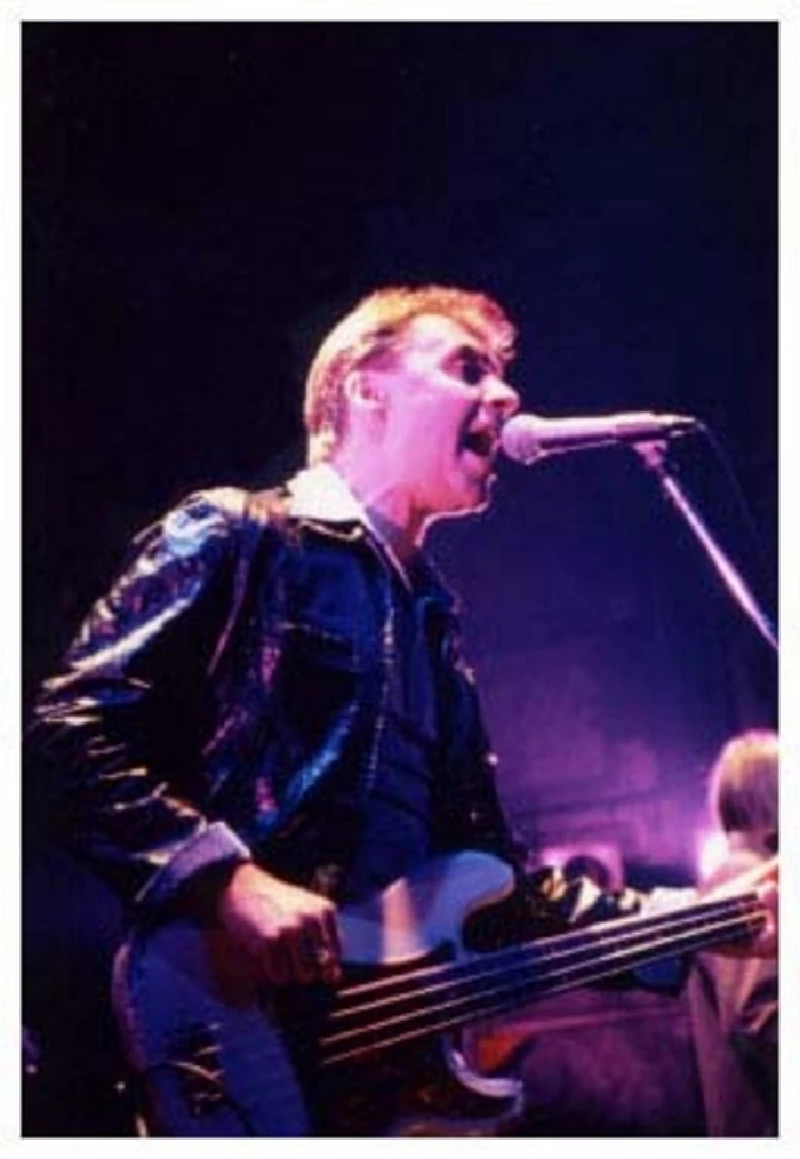
intro
The original bassist with the Sex Pistols, Glen Matlock since then has run a successful solo career and also rejoined the band for their recent stadium tours. He speaks to John Clarkson about his long career, and the Sex Pistols' abiding legacy
In the introduction to his 1990 autobiography, original Sex Pistols bassist Glen Matlock admits that public knowledge of the Sex Pistols often seems to revolve around two prime episodes : Making the headlines of the British tabloids by swearing on television, and then, just over a year later, imploding dramatically in the States where Sid Vicious would go on to meet his premature death. Nearly thirty years on the Pistols’ two minute tea time showdown in December 1976 with a belligerent Bill Grundy has become a classic piece of television history, regularly recycled and used to define the punk era on shows about the 70’s, and riding high in polls listing the most memorable TV moments of all time. Archival footage of the band’s final tumultous show in January 1978 at the Winterland in San Francisco, with a lost-to-heroin Vicious stumbling around the stage and Johnny Rotten asking his baying audience if they have ever felt like they have been cheated, meanwhile continues to hold a dark aura. Matlock, who had fallen out with Rotten and manager Malcom McLaren and whom Vicious replaced, was long gone by the time of that latter event. He had quit the group in February of the year before, and his new band, the Rich Kids, released their debut single, ‘Rich Kids’, in the same week that the Pistols broke up directly after the Winterland show. Matlock’s influence on the Sex Pistols, however, remains pivotal. He was one of the co-founders of the group with Steve Jones and Paul Cook in 1974, and to which Rotten joined in the summer of 1975. As well as being involved in the infamous Bill Grundy incident, he toured with them and the Clash, the Damned and the Heartbreakers on their subsequent ill-fated ‘Anarchy in the UK’ tour. He was responsible for writing the majority of ‘Pretty Vacant’ and co-wrote with Rotten all of the other songs, with the exception of ‘Bodies’, that comprise their seminal ‘Never Mind the Bollocks’ album . Subsequent events post Matlock’s book have helped to readdress the balance a little for the Sex Pistols. They reformed, with Matlock back on board, to much acclaim,firstly for the ‘Filthy Lucre’ tour in 1996, again in 2002 for one-off shows at London’s Crystal Place and in California, and once more to tour the States in 2003. These shows have found them playing stadiums rather than the small and medium-sized venues of their original lifetime. Time has been kind in other ways as well. While they were often derided at the time especially with Vicious in the band for their lack of musical ability, their musicianship is now better appreciated, and Matlock, always the most musically accomplished of the quartet, is, along with Rotten, now seen to be one of the most important songwriters of his generation. While he will always be best remembered for his role in the Sex Pistols, they, however,are only a small part of Glen Matlock’s story. Power pop/new wave quartet the Rich Kids, which featured eventual Ultravox singer and Visage guitarist Midge Ure on vocals ; Steve New on guitar ; Rusty Egan on drums, and Matlock on bass, were similarly short-lived, lasting barely 18 months and breaking up in late 1978, but stayed together long enough to record one album, ‘Ghosts of Princes in Towers’. Afterwards, Matlock toured with Iggy Pop, and then formed another band the Spectres, involving horns and sax, with whom he recorded two singles, ‘This Strange Effect’ and ‘Stones’. 1990 saw the publication of his memoirs of the punk era, ‘I Was a Teenage Sex Pistol’. He then turned solo and, since then has gone on to record a further two albums, ‘Who Does He Think He is When He’s at Home ?’ (1996), which came out on Creation Records, and ‘Open Mind’ (2000), which was released on his own label Peppermint and also involved his backing band the Philistines. Matlock also tours regularly with acoustic punk supergroup, Dead Men Walking, which first formed in 1997. He also has recently started playing his own acoustic shows, and will be headlining the Pennyblackmusic Bands Night at the London Spitz on July 25th. In a pre-concert conversation, he spoke to us about the Rich Kids and his solo career, but began by talking about the abiding legacy of the Sex Pistols. PB : Since being in the Sex Pistols the first time you have gone on to play with a whole lot of other bands and have also had a long and prolific solo career. Do you get frustrated sometimes that you are still best known for doing something that took place over 25 years ago and when you were 20, or is it something that doesn’t bother you ? GM : It’s the way it is. I can’t change that,. You just have to learn to roll with it. It is not a bad thing to be associated with really though. It is better than being known for being the bassist, say, in the Tremeloes (Laughs ) PB : I suppose so. (Laughs). You left the band in early 1977 because you had fallen out with John and Malcolm McLaren. You said in your book that in hindsight that you wished that you had stayed simply so that you could finish off the job. Do you still feel that now? GM : Yeah ! I kind of do. I was at the Isle of Wight festival over the weekend, and I saw the Who play. There’s only two of them left now, but that’s not because they fell out with each other. It’s because two of them snuffed it. Even though we go out now and play every few years, to go all the trouble of getting the chemistry right in a band and then to have the rug pulled out from under your feet is pretty frustrating. We could have done what the Who did. PB : Whenever the Sex Pistols play together they still have this incredible power. Why do you think after all this time and so long apart you manage to pertain such a presence ? GM :Because the chemistry is right. I think that we’re in the fortunate position where people are willing us to go on. Alan McGee described us in some daft article as “the second royal family”. I don’t think that is particulary true, but it does help to define us in the strata of the populist multiple (Laughs). We’re still pretty left field in terms of the sound and what the songs are about, but the field has definitely become bigger over the years. PB : Does it feel strange playing stadiums now while during your original lifetime you were only playing small venues and often pretty obscure places like Burton-on-Trent, Middlesborough and Whitley which even then were pretty far off the traditional rock circuit ? GM : When we first started doing the ‘Filthy Lucre’ in 1996, that definitely applied. Most people think the ‘Filthy Lucre’ tour was just a few gigs in England, but it was in fact a world tour. We did a hundred gigs around the world, and played a lot of pretty big places. Things had changed a lot for us by then. You do quickly get used to it though, and to playing stadiums. I actually get far more nervous now when I play acoustic shows. It is just me and an acoustic guitar, and it doesn’t half put hairs on your chest. It is one step down from being a stand-up comedian. When you play with a band, you’ve got a big rig of equipment, and loads of roadies, and you’ve got this wall of sound to hide behind, but you’re kind of stripped bare when you’re up there alone. PB : One of the other things you said in your book that you felt that the Sex Pistols were a failure and that despite having it all-originality, freshness, songs, thoughts, ideas-you blew it. Do you still feel like that having reformed several times since then and having played all these stadium gigs and also having carried on selling as much as you ever did with your back catalogue ? GM : I kind of do. There’s a lot of talent involved with the four people in the Sex Pistols. Each person has his own individual aspect of that talent, and those four persons have all written a lot more than those thirteen songs. We’ve all written pretty good songs individually since then, but if all four of us had been playing on every subsequent output it would have been a fantastic body of work. What can you do though ? That was just the way it went. PB : How do you think music fans would react if the Sex Pistols were a new band today and were putting out ‘Anarchy in the UK’ for the first time now ? Do you think that they would still have such an impact ? GM : That’s an interesting question. Yeah, I think so. Every time it comes on the radio it still sounds fantastic. It’s just got a really fine quality to it. It doesn’t sound like anything else. I think the only debatable point is the actual lyrics. Everything John said sounded great at the time, but anarchy in the UK now in today’s current political climate I don’t think so. In some interview a few years ago John said that “Glen Matlock said that it was a daft idea for a song, but I proved him right” (Laughs). Now he’s come along to the view that it was a daft idea as well. PB : You seem to get along with John, Steve and Paul now. GM : We’ve come to an accomodation. It’s one thing when you’re all sitting in a transit van with no windows going up the M1 and sitting on a mattress, and then it’s another thing entirely when you’re flying around the world first class and staying in hotel rooms and have lots of space. PB : After you left the Sex Pistols, you went on to form the Rich Kids. They were very heavily hyped up at the time. GM : We had our brief moment in the sun. I think though the Rich Kids were in a lot of ways a pretty influential band. When we used to play, we used to pack them out around the country and down the front there would be the Skids and other bands like that. Duran Duran used to come to see us as well. I know that they wanted to pinch Steve New as a guitarist. They’re perhaps not the cutting edge of rock, but both those bands went on to sell quite a few records. People out of the Skids also went on to form Big Country. The thing with the Rich Kids which I didn’t want to do was come on like a real punk kid, imitating what I had already started, and ending being one step down from Chelsea or the Exploited. That would have been naff. You always end up sounding in bands as a collection of what everyone puts into it, and I think we were a little ahead of our time. PB : To pick up on that point, ‘The Ghosts of Princes in Towers’ is an album which stands up very well now. It has been said that it is an album best listened to now twenty five years on. Would you agree with that? GM : I would, but, having said that ,it got mainly five star reviews when it came out. I do think, however, that it sounded muddied when it was first released. It’s not that the production wasn’t good. It does sound a bit murky though. Since it has come out on CD and been remastered I think that it sounds fine . PB : The Rich Kids’ first single ‘Rich Kids’ came out in the same week in January 1978 as the Sex Pistols played their final show at the Winterland in San Francisco. Do you think that went for or against you as a group ? GM : I don’t really know. We had our own audience by then. It was a bit of a different world. In certain snide quarters, NME and people like that, had plenty to say about it, but we just of got on with it. I remember talking to Ian MacLagen. He was the keyboardist in the Small Faces and the Faces . He also played some shows with the Rich Kids and became a friend of mine. I presented a show on punk rock for Radio 2 a couple of years back, and he was one of the guests on it. The question we asked him was “Did you feel threatened and fed up by this punk rock thing coming along and trying to get rid of you guys” and he went “No, we were in America, getting on with it”. It was the same with the Rich Kids. When you’re in a band, you’re in this kind of micro world. PB : Why did the Rich Kids split up ? GM : Well, for what it was, I still wanted it to be a bit tougher in attitude than what it was, and I wanted to give Midge a chance to be a bit tougher, but he didn’t quite rise to that , although I think his voice is fantastic. The band also divided neatly into two factions. Midge Ure and Rusty Egan became the first two people to turn the music world onto the New Romantics. They had been listening to ‘Heroes’ and started doing Visage and that also eventually contibuted to breaking the band up. One day I turned up to rehearsals and they had this synthesiser sitting there. Nobody had asked me if I wanted one in the band and it had actually been paid for out of my publishing rights, so I was pretty miffed about. I didn’t want the synthesiser anyway, and I had ended up paying for it, and we had at that stage had noone to play it.. On the other hand though Midge and Rusty were right in a way. They did very well. If all you’re looking at is commerical success, they were very successful. PB : After the Rich Kids you played and toured with Iggy Pop. How did that come about ? GM : I went and did his ‘Soldier’ album with him. After the Rich Kids split up, I remember the next day , I was thinking “What am I going to do ? Wouldn’t it be great if the phone rang ?” and then the phone did ring. It was a total ‘Outer Limits’ kind of moment. It was Iggy Pop’s manager. He said “You don’t know me, but we’re looking for a bass player” and so I went off and played bass with him. I really enjoyed playing with Iggy. For all his nuttiness, he was very professional. PB : What was so professional about playing with him ? GM : Both the Sex Pistols and the Rich Kids had been done on a shoestring. We never had leads. We never had strings. We never had this, that and the other. When Iggy used to tour, he had a crew and it was just much more professional. He got out on time and he put on a good show and always up to a certain level. It was a good way of going about things. From doing a few club gigs around the country and to playing in front of thousands of other people, it was a real step up a gear. I had never done that until then. PB : After playing with Iggy Pop, you then formed the Spectres. Who were they and what happened to them ? GM : Not a lot really. The main reason that I formed them was because of a guy called Charles Levison who worked for Polydor at the time. He used to come to Iggy gigs and he said “What are you doing ? Are you going to play with Iggy all your life, or are you going to do anything else ?” and I said “Well, I don’t know, but I’ve got loads of songs”. From that small instigation he said “Well, we’d be interested if you ever come up with something” and so I started thinking about putting up something together. I phoned up Danny Kustow from the Tom Robinson Band and we were going to sign with them, but it all went a bit pear-shaped. I told them to stick their gig up their arse, and I got a bad reputation after that as someone who was a bit hard to work with. We did a lot of work with the Spectres. We didn’t record much, but we did a tour of the States and went down well here and there . The band went through a few changes and eventually broke up, but the original sound of the band was great. We had two sax players and a drummer and it was a bit like the Dave Clark Five. PB : You spent most of the 80’s out of the public eye, before coming back in 1990 with the book. What were you doing then ? GM : To be honest, I got a bit disspirited after the Spectres. I had been through quite a lot by then. I did get stuck into the brown ale I must admit, and it took me a while to get back after that London also wasn’t a very good time for rock ‘n’ roll in the 80’s, but I was always doing projects and different things. I played with Johnny Thunders for a while, and played with the London Cowboys. They weren’t a big band, but they had their moments. They didn’t have massive commercial success, but they were pretty well respected at the time. PB : After putting out the book, you released your first solo album, ‘Who Does He Think He Is When he’s at Home’, in 1996. That wa something of a shock to many of your fans. You were about 20 years into your career at that stage, and that was the first album upon which you sang. Why did you decide to reveal that you could sing so late in your career ? GM : Because I had always been disencouraged from singing, not by the bands, and people who had come to the gigs, but from people in the record industry. I found it hard to get a beeline. People in record companies are always looking for a reason not to do something. If they’re generally not sure about something, they won’t do it, and what they weren’t sure about was my voice, but in the end I thought “Sod it !” and just decided to have a go. A lot of the lax period in my career was spent looking for singers. I had worked with Iggy and Rotten and Midge, people who were really good,three of the best, and there were few singers that I wanted to sing with after that . PB : ‘Who Does He Think He Is When He’s at Home’ came out on Creation. How did you become involved with them? GM : I had started doing a record anyway, and I was going to take it around a few people. I went to see the band Creation play, who Creation Records were named after, and I bumped into Tony Arbor who was in the Buzzcocks. He was mates with Alan McGee, and Alan McGee was there. He came up to me and started singing ‘ Ghosts of Princes in Towers’ and asked me what was I doing and I told him I was doing this record and asked if he was interested. He said he was and invited me down to Creation and I played it to him and he liked it or liked what he had heard at that stage, and so we did a deal and he put it out. It came out, however, the day before I went on tour with the Pistols, which wasn’t good timing really. PB : You also played bass at about the same time on Primal Scream’s ‘Medication’. How did that come about ? GM : They were also signed to Creation, and there was this little studio around the back of Creation Records in Primrose Hill. I went up to see McGee about something or other, and one of the guys in the band told me that they needed some bass on a track, and asked if I would come and play and I said I would. I didn’t even know it was going to be on the album. I just thought it was going to be on a demo. I never got paid for it, but they gave me a gold record (Laughs). PB : That can’t be bad (Laughs). You’ve since then gone on to record another solo album, ‘Open Mind’. It is much more urgent record than’Who Does He Think He is When He’s at Home’. Were you really charged up when you were making that record ? GM : Yes and no. My singing was stronger on that album, and it was recorded in the best of fashions. The other one was done a bit piece meal. This one was done though in one foul swoop. I have just now finished off another album which is going to come out shortly. PB : When is that going to be released ? GM : It is going to come out in September on EMI. PB : Do you have a final title for it yet ? GM : Yeah ! It’s going to be called ‘On Something’ . It’s the name of song off the album that I have been doing acoustically. PB : How does that compare to your previous two solo albums ? In what ways has it developed on from those ? GM : I don’t know if has actually. It’s the same old shit, but just with different people (Laughs). I don’t think I am dated in my songwriting, and I think if I was new band coming out with what I am doing, or if we were a new band doing what we were doing, we would stand up on our own two feet. I see my stuff as quite classic. In the back of my mind there’s a classic rock ‘n’ roll sound. PB : Your current band are the Philistines. Who are they ? GM : It’s mainly me and another bloke, who plays drums, called Chris Musto. On the new album Steve New, plays guitar, and there’s also a keyboard and sax player called Terry Edwards, The nucleus is, however, me and Chris, but it is a moveable feast. It tends to be whoever is around at the time. PB : You became involved in 1997 as well with Dead Men Walking . Who are they ? GM : Again it is a slightly moveable feast. We’re going out again in September, and we’re going to tour around the UK. It’s currently Mike Peters from the Alarm, Kirk Brandon from Spear of Destiny, Slim Jim Phantom from the Stray Cats and Bruce Watson from Big Country and me. PB : Why did you decide to form that band ? GM : Originally Pete Wylie was also in the band and he and I had been talking about doing something together. He was mates with Mike Peters, and Mike Peters was mates with Kirk Brandon, and I was mates with Kirk Brandon. We knew each other, and we had all been individually talking about doing something with one other, and then it dawned on us that “Wouldn’t it be a jolly good idea if we all went out together and did a few gigs ?”. And so we did, really enjoyed it and have continued doing shows since. Everyone in the band is a songwriter, so we’ve got plenty of stuff to choose from there. We play songs from all our back catalogues. The shows are all semi-acoustic. It started out as four acoustic guitars, but now I play an electric bass and Slim Jim has since joined the band, and plays with half a drum kit. It’s a bit like a skiffly kind of thing.All the Pistols songs started out originally on acoustic guitar. It’s quite something that you can play a song all the way through without all the loud bits and it still stands up. PB : You have also started playing acoustic shows. Were those a natural extension of that ? GM : I’ve always done a few here and there. Last year I went and did the Rock ‘n’ Roll Hall of Fame in Cleveland. They asked me to do it and I thought “Shall I ?” and I thought ‘Why not ?” and I filled the place out. It’s not that big a place,a few hundred people, and I thought “Ooh, this is good fun”, and every now and then someone asked me to do another one . The last couple I have done they’ve gone down really well, so I have put a few feelers out, and I am going to do a few more. I am going to be doing the Glastonbury Festival and I am going to be doing the Pennyblackmusic Bands Night in July. PB : Final question. What can we expect from you for that ? GM (Pause) : A fine and frollicking night of acoustic punk. Everybody will have a laugh. PB : Thank you. Glen Matlock will be playing the Pennyblackmusic Bands Night at the London Spitz on Saturday July 24th
Picture Gallery:-
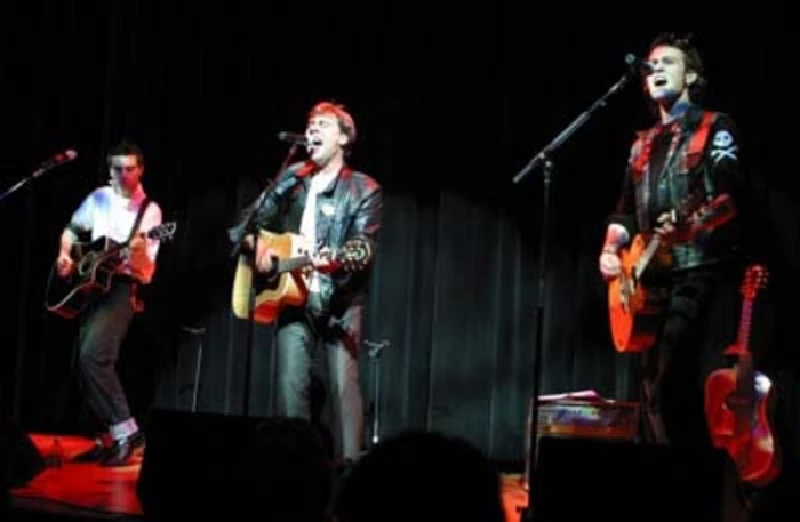
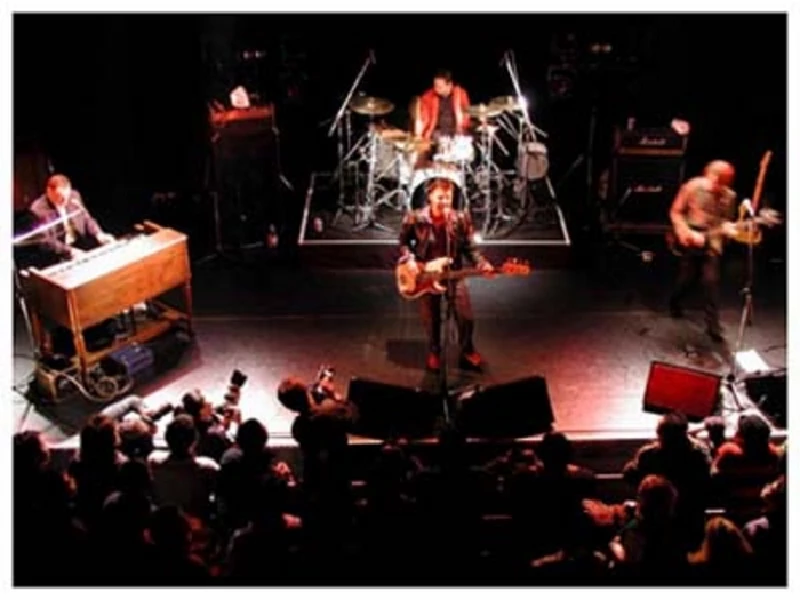
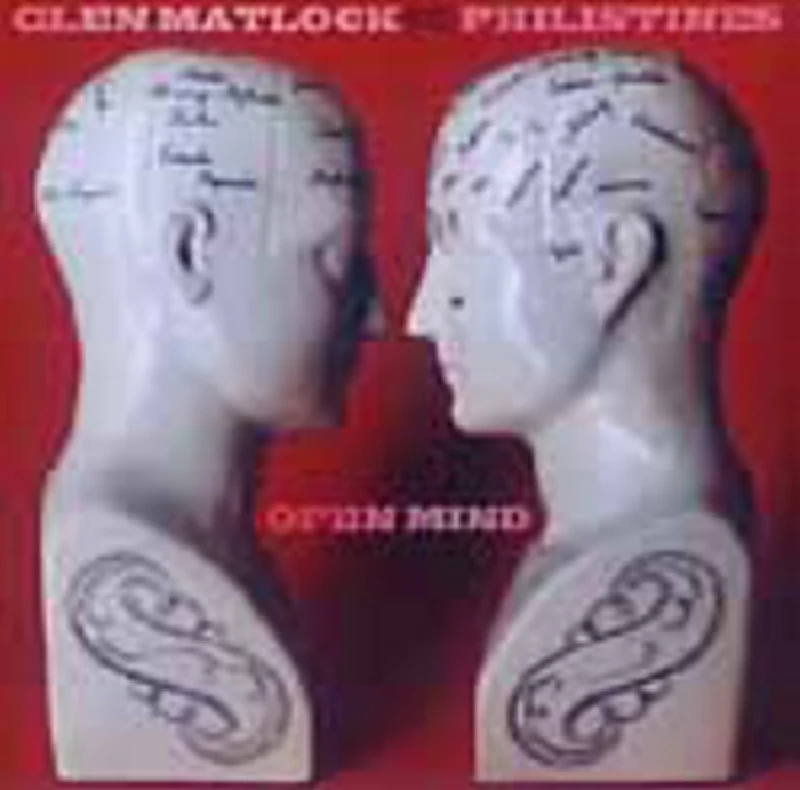
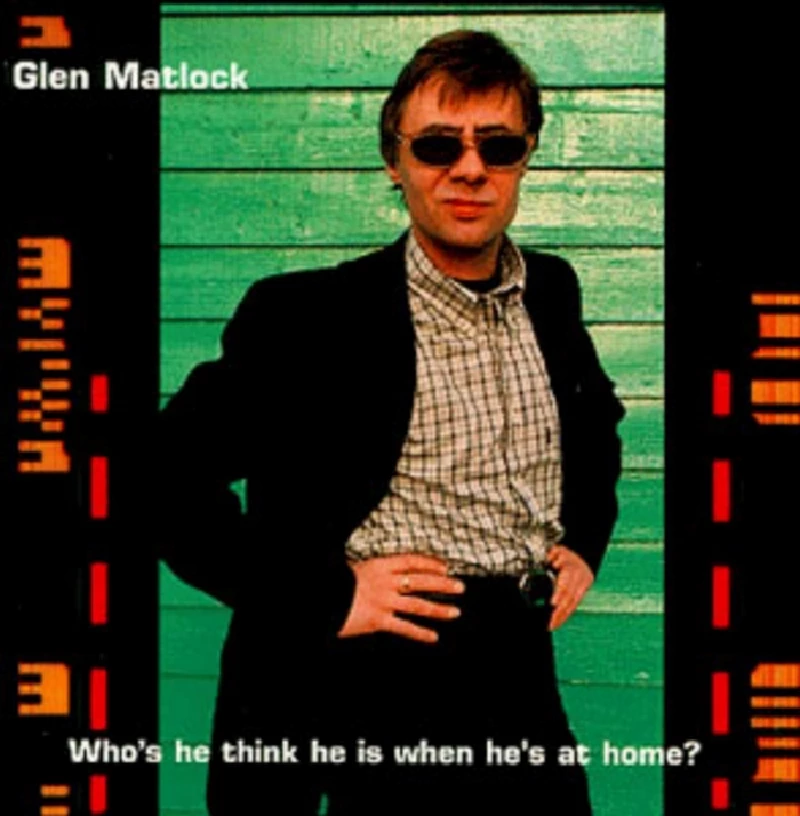
live reviews |
|
Hammersmith Apollo, London, 2/9/2008 |
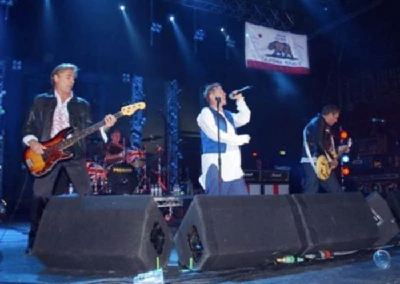
|
| At the end of a summer of playing festivals, Anthony Middleton finds that the reformed Sex Pistols thirty years on still having a lot to offer at a one-off gig at the Hammersmith Apollo in London |
| Brixton Academy, London, 9/11/2007...10/11/2007 |
| London Crystal Palace, 27/7/2002 |
features |
|
Dread Meets Punk Under Heavy Discipline (2002) |
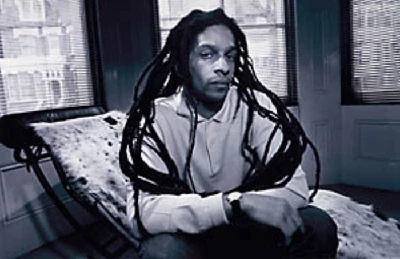
|
| By the mid-seventies the establishment had managed to alienate its own white youth. It didn’t have to try hard to alienate me since I was a first generation British born black of Jamaican descent and already well pissed off. The popular music of the time |
most viewed articles
current edition
Carl Ewens - David Bowie 1964 to 1982 On Track: Every Album, Every SongArmory Show - Interview with Richard Jobson
John McKay - Interview
Colin Blunstone - Thalia Hall, Chicago, 16/7/2025
Bathers - Photoscapes 1
Billie Eilish - O2 Arena, London, 10/7/2025
Loft - Interview
Visor Fest - Valencia, Spain, 26/9/2025...27/9/2025
Sir Tim Rice - Interview
Robert Forster - Interview
previous editions
Manic Street Preachers - (Gig of a Lifetime) Millennium Stadium, Cardiff, December 1999Heavenly - P.U.N.K. Girl EP
Beautiful South - Ten Songs That Made Me Love...
Peter Perrett - In Dreams Begin Responsibilities Interview Part One
Boomtown Rats - Ten Songs That Made Me Love....
Oasis - Oasis, Earl's Court, London, 1995
Coldplay - Wembley Arena. London, 16/8/2022
Trudie Myerscough-Harris - Interview
Prolapse - Interview
Pixies - Ten Songs That Made Me Love...
most viewed reviews
current edition
Davey Woodward - Mumbo in the JumboSick Man of Europe - The Sick Man of Europe
Lucy Spraggan - Other Sides of the Moon
Amy Macdonald - Is This What You've Been Waiting For?
Phew, Erika Kobayashi,, Dieter Moebius - Radium Girls
Suzanne Vega - Flying With Angels
Bush - I Beat Loneliness
Alice Cooper - The Revenge of Alice Cooper
Blueboy - 2
Cynthia Erivo - I Forgive You
related articles |
|
Glen Matlock: Interview (2020 |
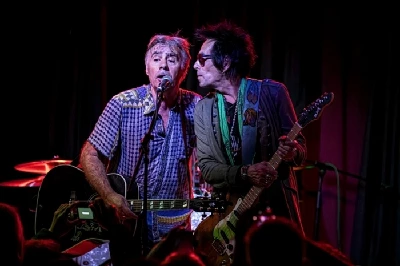
|
| Glen Matlock speaks to Andrew Twambley about the Sex Pistols, the Rich Kids, his solo career and his forthcoming UK tour with David Bowie guitarist Earl Slick. |
| Glen Matlock: Interview (2018) |
| Glen Matlock: Interview (2016) |
| John Lydon: Interview (2016) |
Pennyblackmusic Regular Contributors
Adrian Janes
Amanda J. Window
Andrew Twambley
Anthony Dhanendran
Benjamin Howarth
Cila Warncke
Daniel Cressey
Darren Aston
Dastardly
Dave Goodwin
Denzil Watson
Dominic B. Simpson
Eoghan Lyng
Fiona Hutchings
Harry Sherriff
Helen Tipping
Jamie Rowland
John Clarkson
Julie Cruickshank
Kimberly Bright
Lisa Torem
Maarten Schiethart